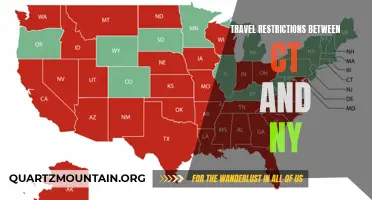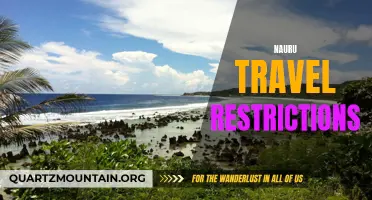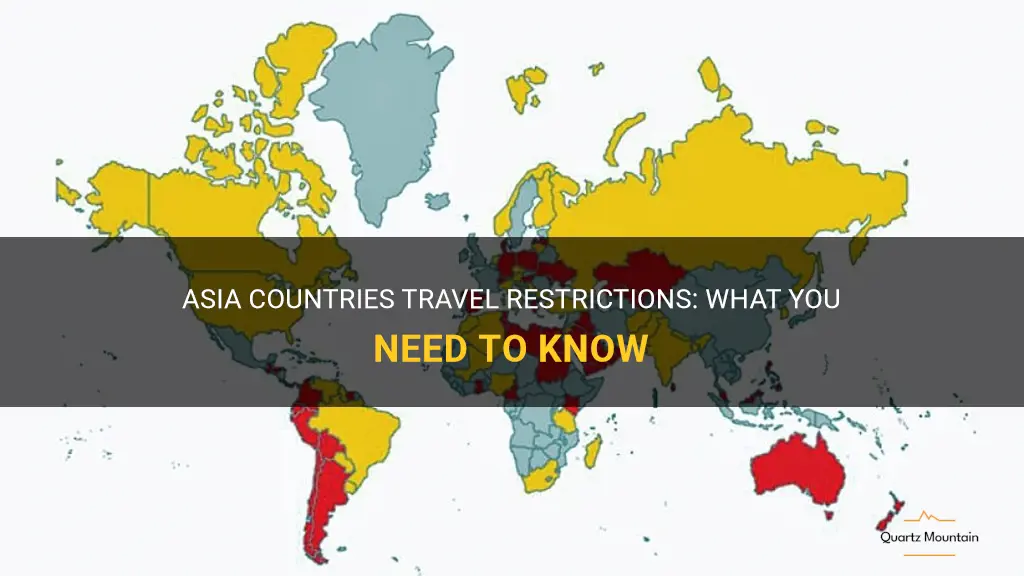
Asia is a diverse continent with a rich cultural heritage and breathtaking landscapes. From the bustling streets of Tokyo to the ancient temples of Angkor Wat, there is so much to explore and discover. However, due to the ongoing global pandemic, many Asian countries have implemented travel restrictions to safeguard the health and well-being of their citizens. These restrictions range from temporary bans on international travel to mandatory quarantine measures upon arrival. While these restrictions might temporarily hinder our travel plans, they are an essential step in controlling the spread of the virus and ensuring the safety of everyone involved. In this article, we will take a closer look at the travel restrictions in various Asian countries and discuss how they are impacting travel plans in the region. So, grab your passport and join us on this virtual journey through Asia's travel restrictions.
What You'll Learn
- Which countries in Asia have currently imposed travel restrictions due to the COVID-19 pandemic?
- What are the specific travel restrictions in place for travelers visiting Asian countries?
- Are there any exemptions or special considerations for certain types of travelers, such as essential workers or diplomats?
- How long are these travel restrictions expected to remain in place?
- How are these travel restrictions enforced and what penalties are in place for those who do not comply?

Which countries in Asia have currently imposed travel restrictions due to the COVID-19 pandemic?
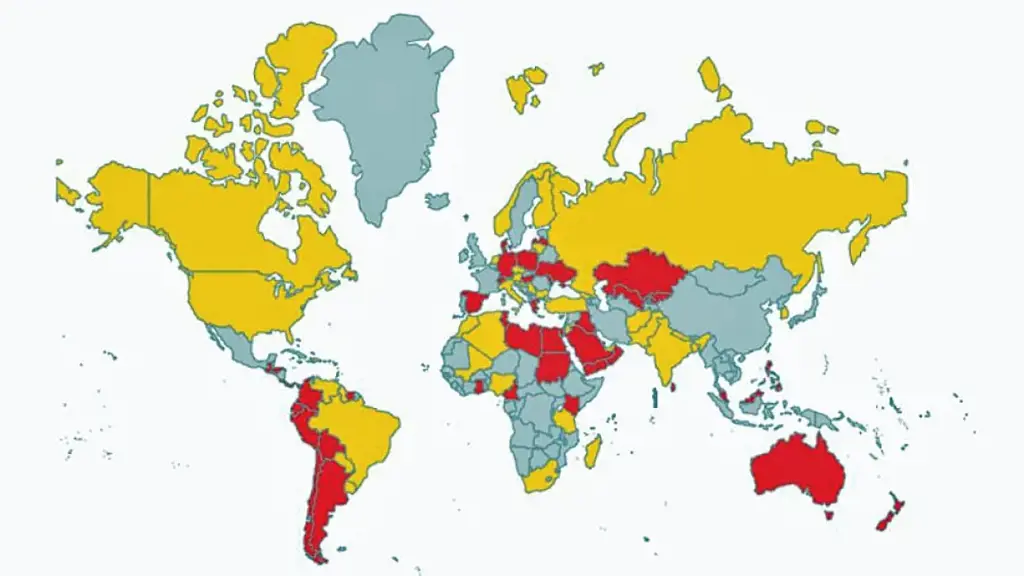
As the COVID-19 pandemic continues to affect countries around the world, governments are implementing various measures to control the spread of the virus. One of these measures is the imposition of travel restrictions, including entry bans and quarantine requirements. In Asia, several countries have currently imposed travel restrictions to protect their populations.
China, where the pandemic originated, has implemented strict travel restrictions to prevent the importation of new cases. As of now, foreigners are generally not allowed to enter the country, with a few exceptions for certain visa categories. Chinese citizens and residents returning from abroad are subject to mandatory quarantine and testing upon arrival.
Japan has also imposed travel restrictions in response to the pandemic. Foreigners from certain countries, including the United States and most European nations, are currently not permitted to enter Japan unless there are exceptional circumstances. Japanese citizens and foreign residents are allowed to enter but may need to undergo testing and quarantine upon arrival.
South Korea, another country that has been affected by the COVID-19 pandemic, has implemented travel restrictions as well. Foreigners from certain countries are prohibited from entering South Korea, and all incoming travelers, including Korean citizens and foreign residents, are required to undergo a mandatory 14-day quarantine.
Singapore, known for its strict measures to control the spread of the virus, has also imposed travel restrictions. Short-term visitors are generally not allowed to enter the country, and returning Singaporeans and residents are required to undergo a 14-day quarantine. There are also restrictions on transit passengers, with many transit facilities closed to reduce the risk of transmission.
Other countries in Asia that have implemented travel restrictions include Malaysia, Thailand, Vietnam, and the Philippines. These countries have imposed entry bans on foreigners, with exceptions for certain categories, such as essential workers or those with special permission. Quarantine measures and testing requirements may also be in place for returning citizens and residents.
It is important to note that travel restrictions are subject to change and are often dependent on the evolving situation of the pandemic. It is recommended that travelers consult with official government sources and airlines for the most up-to-date information before planning any trips. Additionally, it is crucial to follow all health and safety guidelines, including wearing masks, practicing social distancing, and frequently washing hands, to protect oneself and others from the virus.
Understanding the Airheart Travel Restrictions and What They Mean for Travelers
You may want to see also

What are the specific travel restrictions in place for travelers visiting Asian countries?
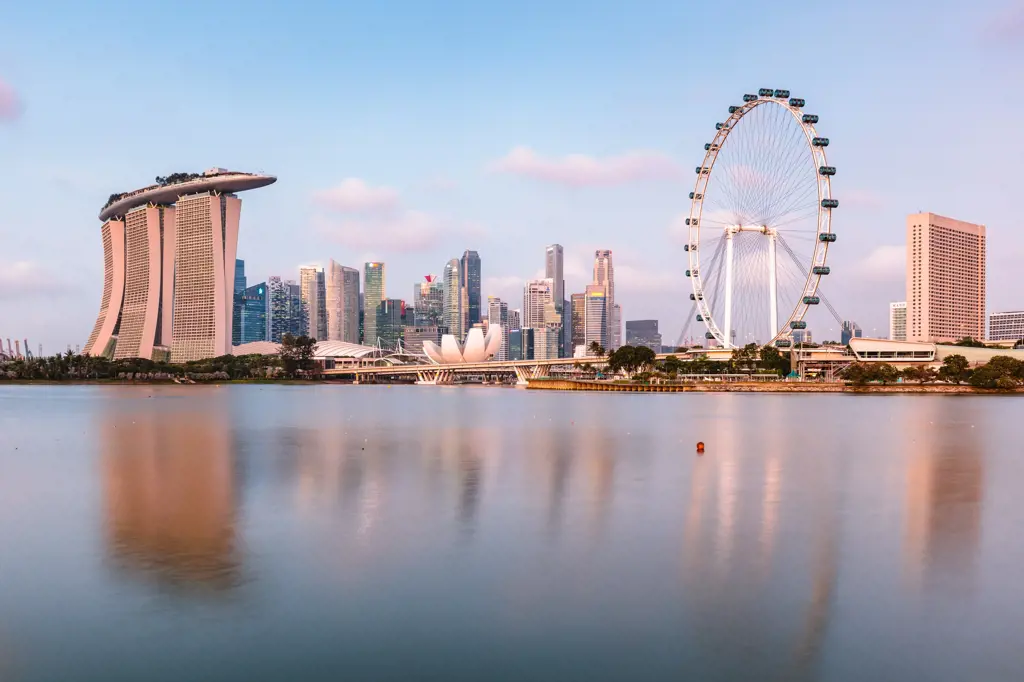
With the ongoing COVID-19 pandemic, many Asian countries have implemented specific travel restrictions to curb the spread of the virus. These restrictions may vary from country to country, so it is essential for travelers to stay updated on the latest guidelines before planning their trips.
One of the most common travel restrictions in place is the requirement for a negative COVID-19 test result. Many Asian countries require travelers to provide evidence of a negative test taken within a specific timeframe before arrival. In some cases, travelers may also need to undergo additional testing upon arrival or quarantine for a designated period.
Many Asian countries have also imposed entry bans or restrictions on travelers from certain countries or regions with high COVID-19 transmission rates. These restrictions may vary and can include the suspension of visa services, bans on specific nationalities, or mandatory quarantine upon arrival.
In addition to entry restrictions, some Asian countries have also implemented travel restrictions within their borders. This may include lockdowns or travel bans to certain regions experiencing a surge in COVID-19 cases. Travelers should check if there are any specific restrictions in place for the destinations they plan to visit to ensure a smooth and hassle-free trip.
It is worth noting that travel restrictions are subject to change and evolve in response to the changing COVID-19 situation. Therefore, it is crucial for travelers to stay informed and regularly check for updates from their respective destination countries' official government websites or reputable sources such as the World Health Organization (WHO) and the Centers for Disease Control and Prevention (CDC).
Travelers should also consider purchasing travel insurance that covers COVID-19 related expenses and disruptions to their travel plans. This can provide peace of mind and financial protection in case of unforeseen circumstances or travel disruptions due to changing travel restrictions.
It is advisable for travelers to plan their trips well in advance and have a backup plan in case their original itinerary needs to be modified or canceled. Flexibility and adaptability are key when navigating through the current travel landscape.
In conclusion, there are various travel restrictions in place for travelers visiting Asian countries. These restrictions may include the requirement for a negative COVID-19 test result, entry bans or restrictions for certain nationalities, mandatory quarantine, and travel restrictions within the country. Travelers should stay informed, check for updates regularly, and be prepared for potential changes to their travel plans.
Travel Restrictions to San Diego: Everything You Need to Know
You may want to see also

Are there any exemptions or special considerations for certain types of travelers, such as essential workers or diplomats?
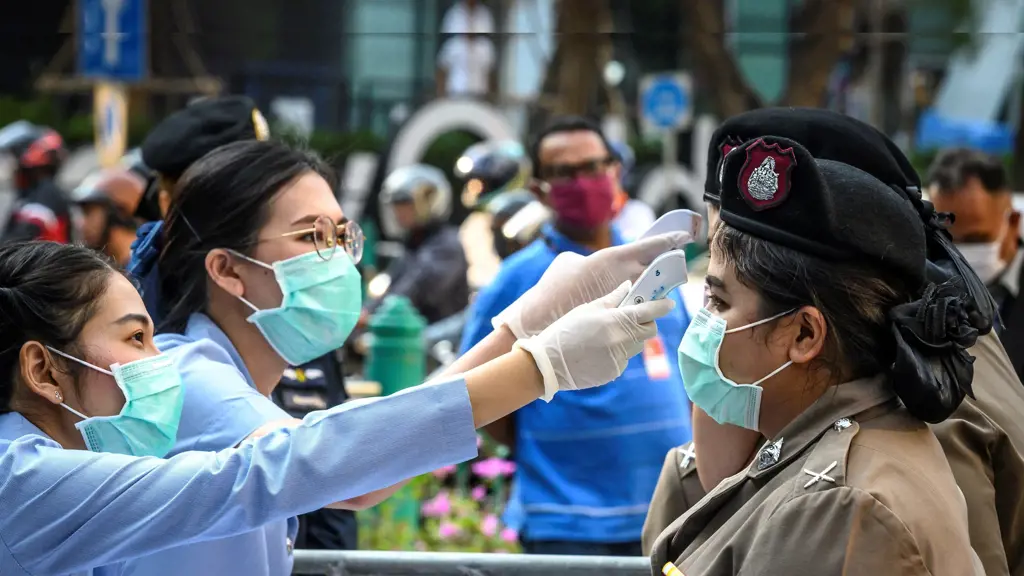
In many countries, there are exemptions or special considerations for certain types of travelers, such as essential workers or diplomats. These exemptions are put in place to ensure that important functions and operations can continue despite travel restrictions or border closures.
Essential workers, also known as critical workers, include individuals who are vital to the functioning of vital services and infrastructure. This can include healthcare workers, emergency services personnel, food supply chain workers, transportation workers, and those involved in the energy sector. These individuals may be granted exceptions to travel restrictions in order to ensure the continued provision of essential services.
Diplomats, who are representatives of their respective countries, also often enjoy special considerations when it comes to travel restrictions. Diplomatic travel is often seen as essential for maintaining diplomatic relations and conducting important negotiations and meetings. As such, diplomats are often exempt from travel restrictions, although they may still be subject to health protocols and testing requirements.
In some cases, countries may also establish special arrangements or travel bubbles with other countries, allowing certain individuals to travel between the two with fewer restrictions. This can include arrangements for business travelers, students, or individuals with family connections in the respective countries.
It is important to note that exemptions or special considerations for certain types of travelers can vary from country to country and may change depending on the prevailing situation. Travelers should always check with the relevant authorities and embassies to understand the specific requirements and exemptions that apply to their situation.
It is also important to understand that even if exemptions are granted, travelers may still be required to adhere to certain health protocols such as testing and quarantine upon arrival. These measures are put in place to prevent the spread of COVID-19 and protect public health.
Overall, exemptions or special considerations for certain types of travelers, such as essential workers or diplomats, aim to balance the need to control the spread of COVID-19 with the importance of maintaining essential services and diplomatic relations. These measures may vary from country to country and are subject to change as the situation evolves. Travelers should always stay informed and comply with the latest requirements and guidelines to ensure a smooth and safe journey.
Armenia to Dubai: Latest Updates on Travel Restrictions and Guidelines
You may want to see also

How long are these travel restrictions expected to remain in place?
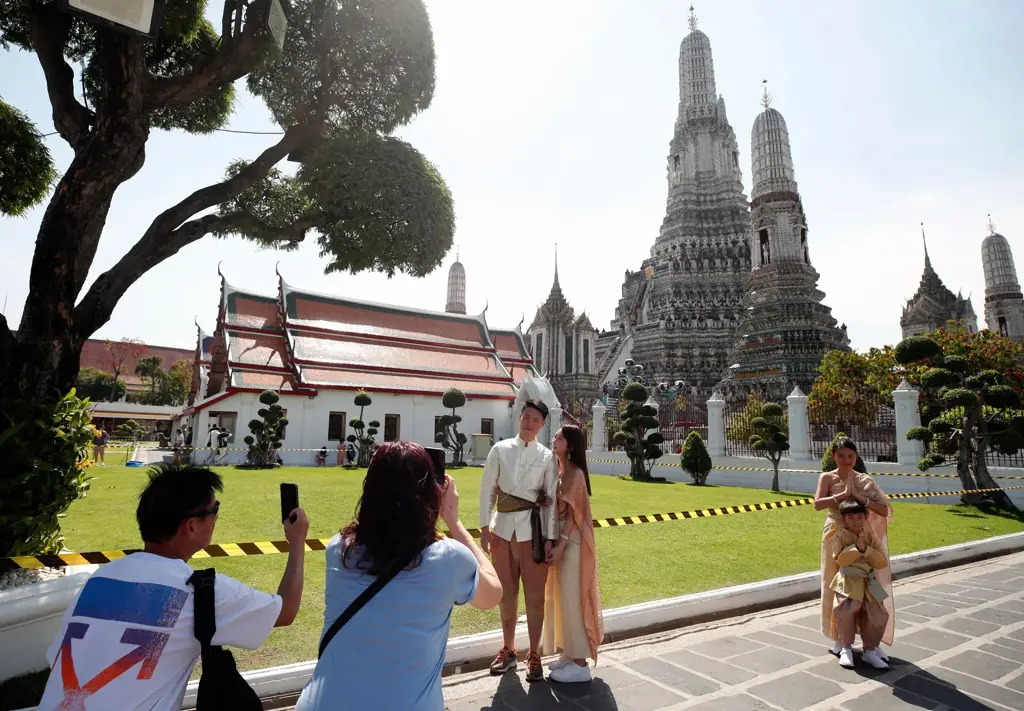
Travel restrictions have become a necessary part of the global response to the COVID-19 pandemic. Governments around the world have implemented various measures to limit the spread of the virus, including closing borders, imposing quarantine requirements, and restricting non-essential travel. However, the duration of these travel restrictions can vary depending on the current state of the pandemic and the strategies being employed to control it.
The duration of travel restrictions is primarily determined by the severity of the outbreak in a particular country or region. If the number of COVID-19 cases is high and the healthcare system is overwhelmed, governments are likely to implement strict travel restrictions to prevent further transmission of the virus. In such cases, it is difficult to predict how long the restrictions will remain in place as they are often dependent on the success of measures taken to control the spread of the virus.
Additionally, travel restrictions can also be influenced by factors such as the availability and efficacy of vaccines, the emergence of new variants of the virus, and the overall progress in global vaccination efforts. As vaccination rates increase and the population develops immunity, countries may gradually ease travel restrictions. However, this process is likely to be gradual and phased, with different regions and countries lifting restrictions at different times based on their individual epidemiological situations.
It is important to note that travel restrictions are not intended to be permanent measures. Governments are aware of the impact these restrictions have on various sectors, including tourism, trade, and the economy as a whole. Therefore, there is an ongoing effort to balance the need to control the pandemic with the need to restore normalcy and facilitate international travel.
To monitor the duration of travel restrictions, it is important to stay updated on the guidelines and recommendations provided by health authorities and government sources. These sources will provide information regarding the current state of the pandemic, the effectiveness of control measures, and any changes in travel restrictions.
In conclusion, the duration of travel restrictions is inherently uncertain and subject to change. It depends on various factors, including the severity of the pandemic, the availability and efficacy of vaccines, and the progress of global vaccination efforts. While travel restrictions are necessary to control the spread of COVID-19, governments are actively working towards a gradual easing of these restrictions as the situation improves. Stay informed and follow the guidelines provided by health authorities to stay updated on any changes in travel restrictions.
Navigating Cancun Travel Restrictions: What You Need to Know
You may want to see also

How are these travel restrictions enforced and what penalties are in place for those who do not comply?
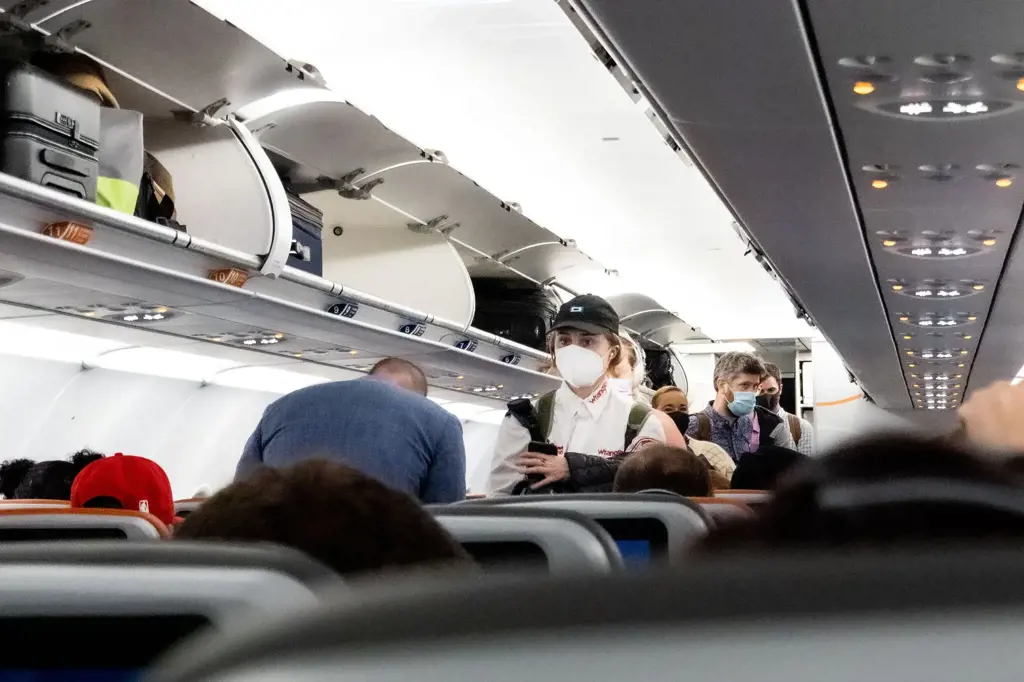
Travel restrictions have become a common measure taken by governments around the world in response to the COVID-19 pandemic. These restrictions aim to slow the spread of the virus and protect public health. But how are these travel restrictions enforced, and what penalties are in place for those who do not comply?
Enforcing travel restrictions can be a challenging task for governments, especially when it comes to international travel. There are several ways in which authorities can ensure compliance with these restrictions.
One of the most common methods is through border control and immigration checks. Travelers are required to present necessary documents, such as a valid passport or visa, and may be subject to additional screening for health purposes. In some cases, travelers may also need to provide proof of a negative COVID-19 test or vaccination before being allowed entry into a country.
Another method of enforcement is through travel bans or restrictions imposed on certain countries or regions. These bans may be implemented by suspending flights or imposing quarantine measures on travelers coming from specific areas. Airlines and travel operators are responsible for ensuring that only eligible passengers are allowed to board flights, and they may face penalties or fines for non-compliance.
In addition to these measures, governments may also rely on technology to enforce travel restrictions. For instance, some countries have implemented electronic travel authorization systems, where travelers need to apply for permission to enter the country in advance. These systems collect traveler information and can be used to track movements and ensure compliance with quarantine or self-isolation requirements.
As for penalties, they vary depending on the country and the severity of the violation. In some cases, individuals who fail to comply with travel restrictions may simply be denied entry into a country or face mandatory quarantine upon arrival. Others may be fined for non-compliance, with the amount varying depending on the offense.
In more serious cases, such as deliberately providing false information or attempting to evade quarantine measures, individuals may face legal consequences. This can include criminal charges, imprisonment, or deportation, depending on the jurisdiction.
It is important for travelers to be aware of and respect the travel restrictions in place in their destination country. Failure to comply not only puts public health at risk but also may result in serious consequences for the individual. It is advisable to stay informed about the latest travel advisories and guidelines, and to contact relevant authorities or embassies for clarification if needed.
Overall, travel restrictions are enforced through a combination of border control measures, travel bans, technology, and penalties. Governments around the world are taking these measures seriously to protect public health and prevent the further spread of the COVID-19 virus. Travelers should always remain informed and ensure compliance with these restrictions to avoid potential penalties or legal consequences.
Understanding the Travel Restrictions for Sherpas in Nepal
You may want to see also
Frequently asked questions
Each country in Asia has implemented its own travel restrictions in response to the COVID-19 pandemic. These restrictions may include border closures, quarantine requirements, and visa suspensions. It is important to check the specific requirements for each country before planning your trip.
Many countries in Asia have implemented restrictions on international tourism. Some countries may only allow entry for essential purposes, such as for work, medical treatment, or to visit family members. However, as the situation is constantly evolving, it is recommended to check with the embassies or consulates of the specific countries you wish to visit for the most up-to-date information.
Transit regulations vary between countries in Asia. Some countries may allow transit passengers to pass through their airports without leaving the secure transit area. However, others may require passengers to undergo quarantine or provide proof of a negative COVID-19 test. It is crucial to check the specific transit regulations for the countries you will be transiting through before making any travel arrangements.
There may be exceptions to the travel restrictions in Asia for certain categories of travelers, such as citizens or residents of the country, diplomatic staff, or essential workers. However, these exceptions vary between countries and may change at any time. It is recommended to consult with the relevant embassies or consulates for detailed information on the exceptions and requirements for entry into specific countries in Asia.



